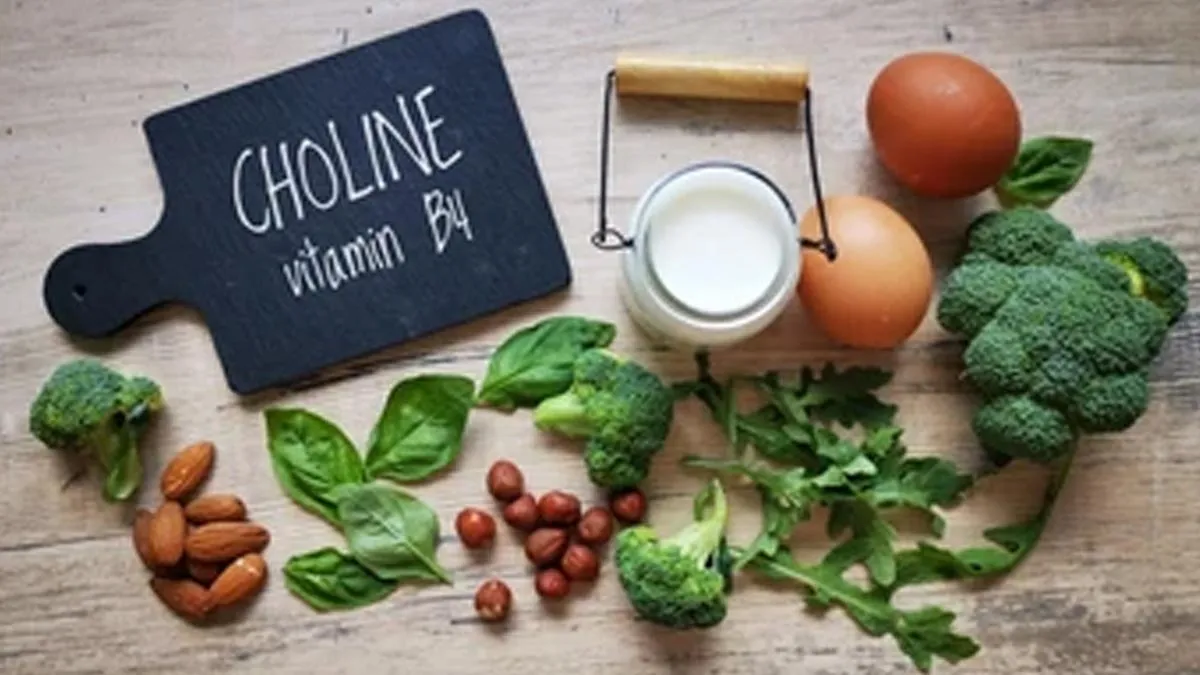
Restlessness and anxiety can have many causes, including mental health conditions, physical health issues, medications, and environmental factors such as traumatic experiences in childhood or adulthood, child abuse, or exposure to stress. Interestingly, a deficiency in choline, a water-soluble organic compound with amino acid-like properties, has also been linked to symptoms of restlessness and anxiety.
Table of Content:-
Speaking with the OnlyMyHealth team, Dr Natasha Tipnis, Consultant Neurologist and Epilepsy Specialist at Jaslok Hospital and Research Centre, Mumbai, shed light on this connection and shared effective strategies for managing and preventing choline deficiency.
Also Read: Mental Health A-Z: Expert Explains Anxiety And How To Deal With It
Why Choline Deficiency Causes Restlessness And Anxiety

Dr Tipnis described choline as an essential micronutrient. Chemically, it is a quaternary ammonium cation and is obtained through dietary sources, though it is also synthesised in small amounts by the liver.
According to The Office of Dietary Supplements (ODS) of the National Institutes of Health (NIH), the Adequate Intake (AI) of choline varies by age, gender, and life stage to support essential bodily functions. For healthy adult men, the AI is 550 mg per day, while for women, it is 425 mg per day. During pregnancy, the recommended intake increases to 450 mg per day, and lactating women require a higher intake of 550 mg per day to ensure an adequate choline supply for both the mother and the nursing infant.
Dr Tipnis explained that choline is vital for cellular metabolism, where it supports numerous biochemical processes necessary for energy production and overall cellular function. It is also crucial for neurotransmission, which is the process of communication between brain cells, which in turn helps maintain healthy brain function.
Additionally, choline facilitates signalling between nerves and muscles, enabling smooth coordination of body movements and reflexes, he added, sharing that a deficiency in choline can disrupt these key processes, potentially leading to symptoms like restlessness and anxiety.
When the body lacks sufficient choline, the communication between nerves, muscles, and brain cells may become impaired, affecting mood and increasing feelings of unease. Because choline is not produced in large quantities by the body, it is important to include choline-rich foods in your diet, such as eggs, fish, nuts, seeds, and certain vegetables like broccoli and spinach.
How To Distinguish Between Choline Deficiency-Associated Restlessness And Other Causes

Based on just clinical examination, it is difficult to differentiate between the causes of anxiety and restlessness, said Dr Tipnis. “In individuals where other more common causes have been ruled out, healthcare providers may check for choline deficiency. Also, other organs such as the heart, lungs, liver, or kidney may be involved, which helps with suspecting a choline deficiency,” he said, adding that certain groups or populations are more at risk for choline deficiency, and this gives us a hint.
It is more likely for doctors to check for choline deficiency if there are signs of muscle damage, liver damage, and nonalcoholic fatty liver disease (NAFLD or hepatosteatosis), which can be some of the severe consequences of the deficiency, as per NIH.
Also Read: Common Nutrient Deficiencies In Men And Women: How To Get Optimum Levels
Common Symptoms Of Choline Deficiency
In addition to restlessness and anxiety, some other common symptoms of choline deficiency include:
- Muscle aches and damage
- Tingling from nerve damage
- Memory loss and cognitive problems
- Mood changes
- Tiredness
- Liver damage like fatty liver disease
- Anxiety
- Neurological disorders
Who Is Most At Risk?
According to Dr Tipnis, vegetarians are at a greater risk of developing choline deficiency as the major sources are animal-based. Vegans, who do not consume dairy products, are at a higher risk. Individuals who eat just the egg white or lean meat are also at a risk, as choline is found in egg yolk and non-lean and organ meat.
Additionally, pregnant and breastfeeding mothers require a higher choline intake daily and hence are at a risk of developing a deficiency. Last but not least, patients suffering from any chronic illness and having dietary restrictions are also at risk.
Foods Rich In Choline

Some of the best sources of choline are:
- Organ meats (especially liver)
- Egg yolks (by far the best sources of choline)
- Dairy products
- Vegetables like potatoes, cauliflower, broccoli, and Brussels sprouts
- Soybean
- Nuts like almonds and peanuts
- Human breast milk for newborn babies
Conclusion
Fun fact: choline is a recently discovered nutrient, acknowledged in 1998 as a required nutrient. While it is not a vitamin or a mineral, a deficiency in this organic compound can lead to various health issues, particularly when it comes to nerve health. Some people may be more at risk of developing this deficiency, including pregnant women, vegetarians and vegans, and patients who have a restricted diet. Therefore, it is crucial to assess your risk factors and manage your choline-rich food intake accordingly.
Also watch this video
Read Next
Fertility Rates Declining In India: Unraveling The Impact Of Health On Reproductive Wellness
How we keep this article up to date:
We work with experts and keep a close eye on the latest in health and wellness. Whenever there is a new research or helpful information, we update our articles with accurate and useful advice.
Current Version